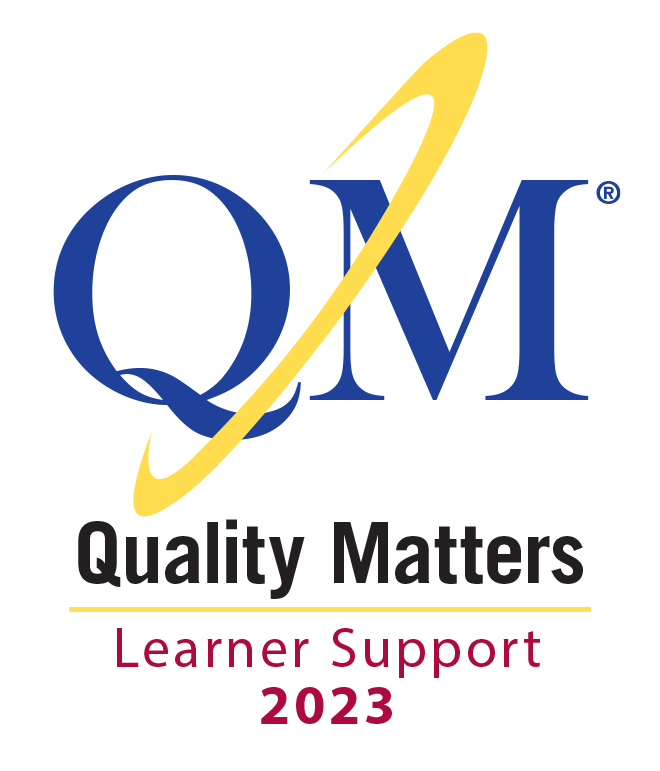Questions? Request Information
Degree Completion Journey
The online doctorate in education includes 15 core courses in education and research, plus one elective research course, and a capstone seminar. The PhD program explores educational theories, practices, policies, strategies, and issues. The coursework leads up to your doctoral dissertation, which includes two dissertation planning courses as well as five units of the dissertation course. This online doctorate in education is designed to be a flexible alternative to a traditional college education. Your courses are meant to fit with your current schedule, as you will have access to course materials and resources all from your computer, tablet, smartphone, or other Wi-Fi enabled device.
To be awarded the PhD in Education, you must complete the program coursework of 59 credits with a 3.0 minimum cumulative grade point average. You will need to complete three non-credit In-Residence Workshops.* You will also need to complete all Dissertation requirements.**
** As a requirement for graduation from the University of Arizona Global Campus with a degree of Doctor of Philosophy (PhD), each student must complete and successfully defend a Dissertation. The purpose of the Dissertation is to ensure that the student has mastered the ability to pursue a systematic investigation, which examines significant issues or problems. The Dissertation requirement is also designed to contribute to the student's knowledge, skills, and research expertise. Students choose a topic that addresses carefully chosen research questions that the student then investigates with quantitative or qualitative research, with a meta-analysis, or with a program design or program evaluation. Prerequisites, timelines for completion, and attendance requirements for the Dissertation, as well as a detailed explanation of each step in the process, are described in the Dissertation Handbook.
This program is not designed to meet the state educational requirements for teacher licensure or certification in any state. Students seeking teacher licensure shall carefully research their state's requirements prior to enrollment and regularly review the requirements as they are subject to change. Requirements vary by state. Graduates will be subject to additional requirements on a state-by-state basis that will include one or more of the following: student teaching or practicum experience, additional coursework, additional testing, or, if the state requires a specific type of degree, earning an additional degree. None of the University of Arizona Global Campus online education programs are accredited by the Council for the Accreditation of Educator Preparation (CAEP), which is a requirement for certification in some states. Other factors, such as a student’s criminal history, may prevent an applicant from obtaining licensure, certification, or employment in their field of study.
Alabama Students: Authorization to provide an education program does not indicate eligibility for an Alabama professional educator or professional leadership certificate. Applicants who complete an education or educator preparation program at a non-Alabama institution must apply for an Alabama professional educator or professional leadership certificate through the Alabama Certificate Reciprocity Approach. Current requirements may be found at https://www.alabamaachieves.org/teacher-center/.
Kentucky Students: Please be advised that although the University of Arizona Global Campus offers a variety of programs aimed at preparing potential educators in diverse settings, our programs are NOT accredited in Kentucky by the Education Professional Standards Board and are NOT recognized for initial, additional, or renewal of certification or salary enhancement (rank change) for K-12 educators in Kentucky. For more information, please visit the Education Professional Standards Board’s website at http://www.epsb.ky.gov/mod/page/view.php?id=220
Certain degree programs may not be available in all states.
The Online Teaching Support Certification recognizes programs that require all online faculty to undergo training in best practices for online course delivery, provide faculty with ongoing pedagogical support, encourage faculty professional development to increase their knowledge and skill in online teaching, emphasize instructor availability and feedback to learners, and collect and use feedback from learners to improve online teaching. Learn More

The Online Learner Support Certification recognizes programs that provide all the critical student and academic services needed for learner success and use learner feedback to continuously improve those services.

Careers Related to Doctor of Philosophy in Education


U.S. Department of Labor data regarding salary ranges and job growth projections are national in nature and do not guarantee employment, any specific salary, or job growth. Also, national long-term projections may not reflect local and/or short-term economic or job conditions. Top Skills are provided via Lightcast job postings data and may not align with UAGC program learning outcomes. UAGC programs are not designed to meet the state educational requirements for a specific professional license or certification in any state. UAGC does not guarantee employment placement, any specific salary from employment, or career advancement.
Meet Our Faculty
Other Degrees That May Interest You
Check out other degree programs that suit a variety of interests and may enhance a wide scope of career opportunities at UAGC. Discover similar programs to find the right path for you.







